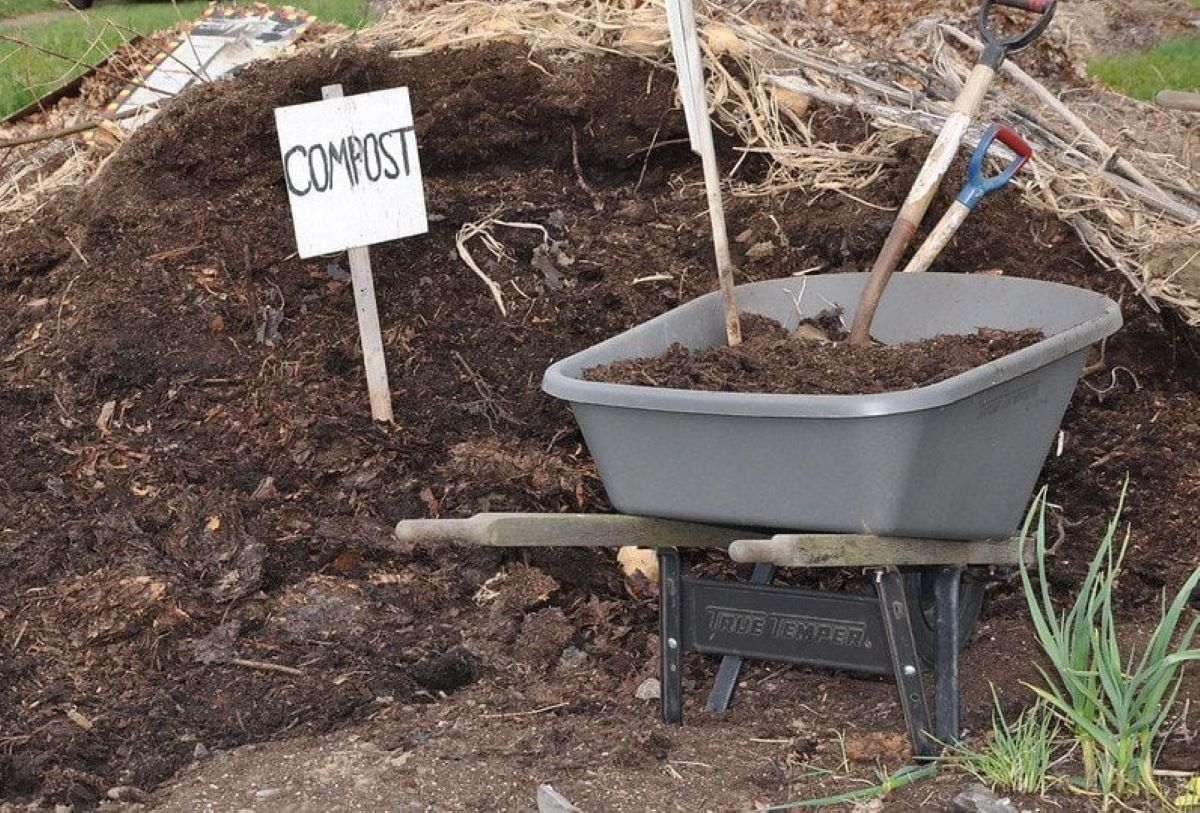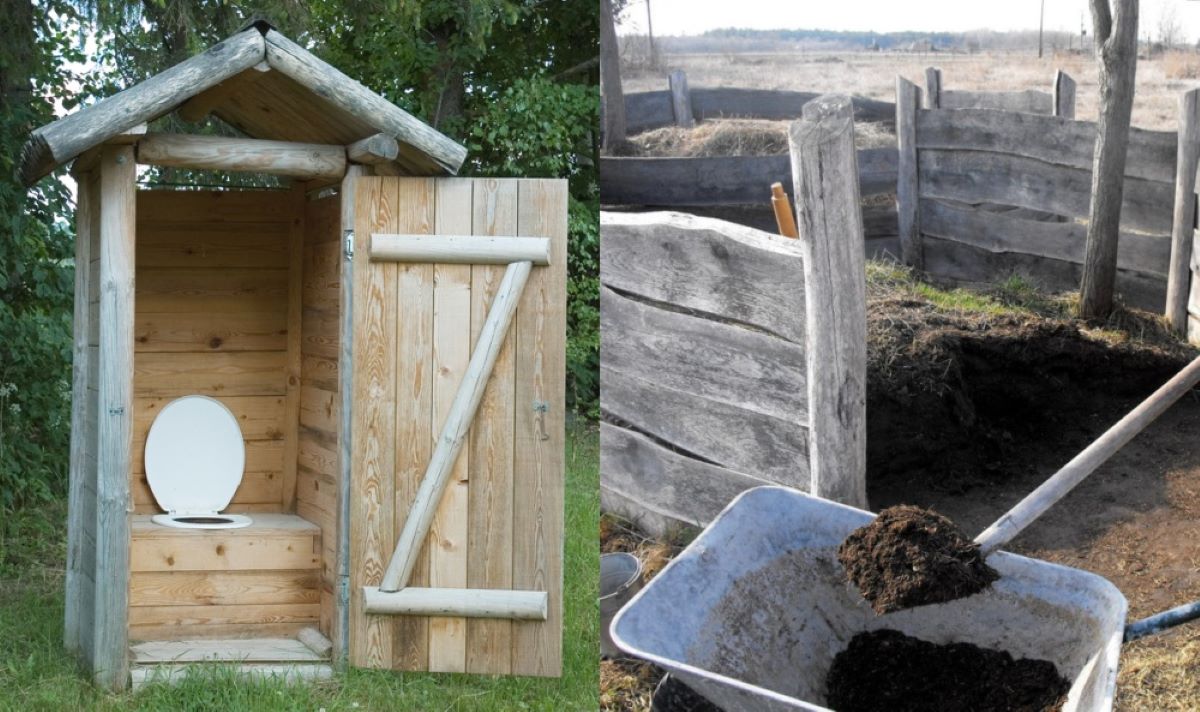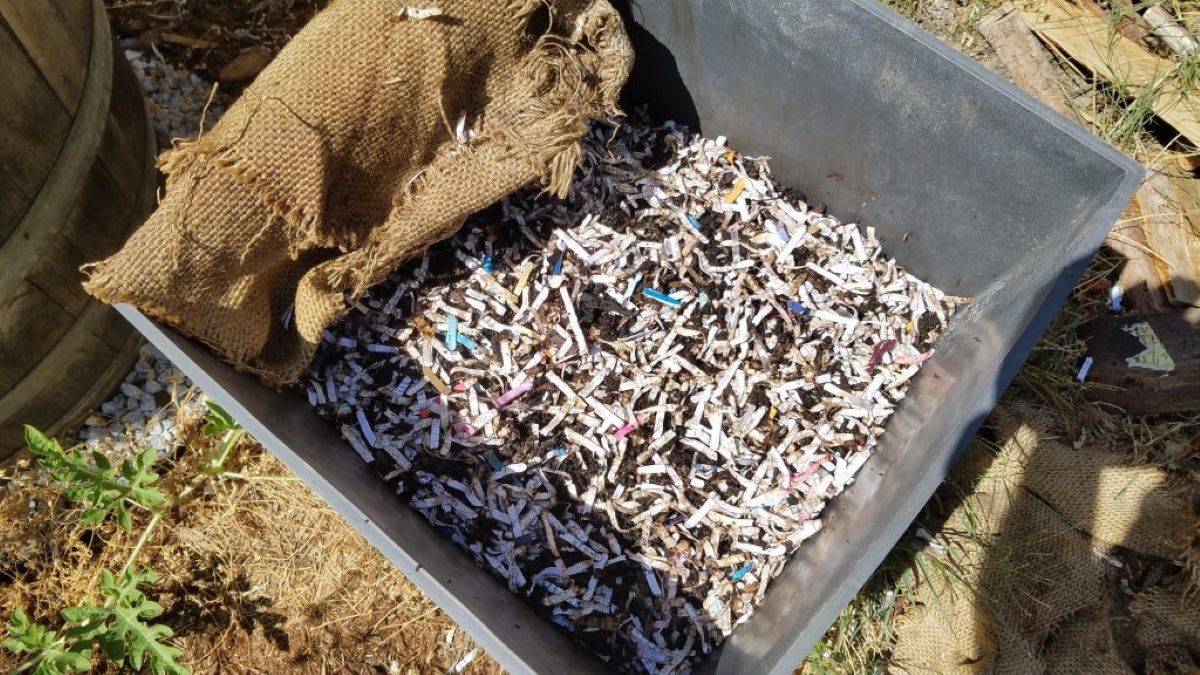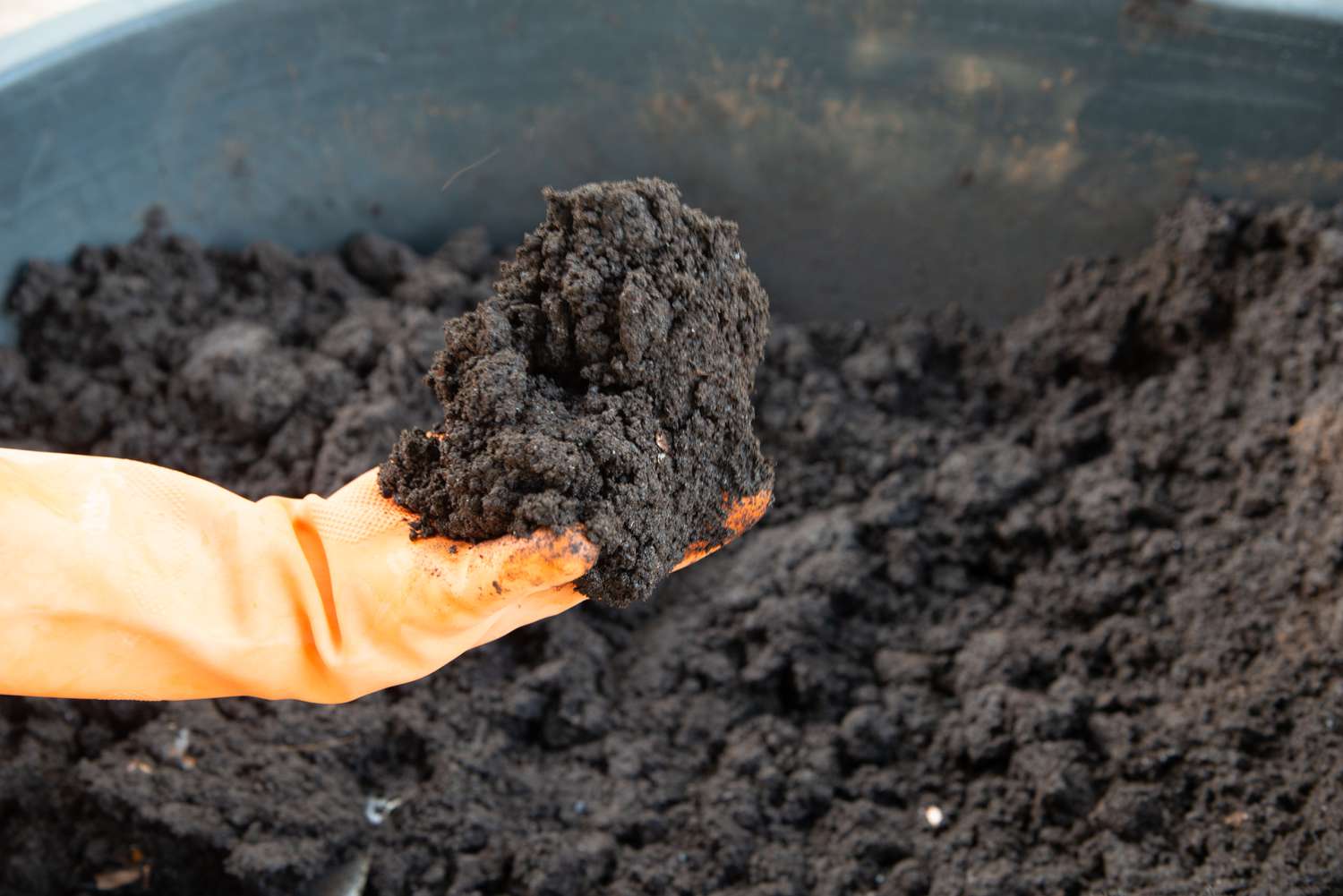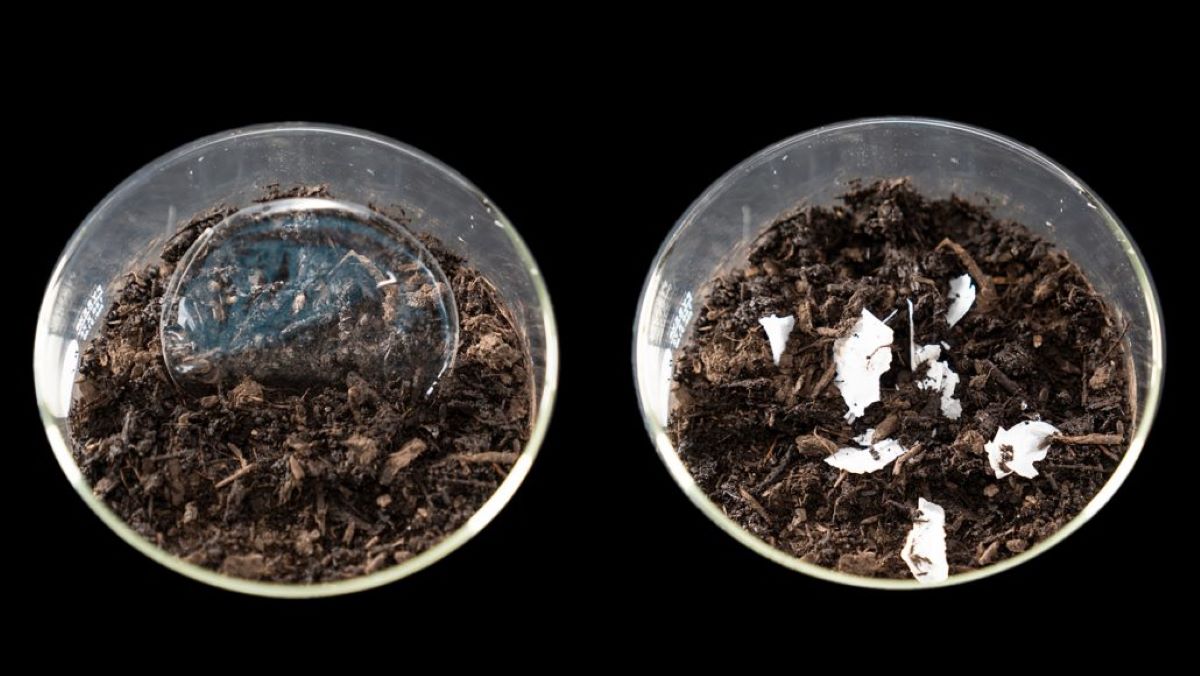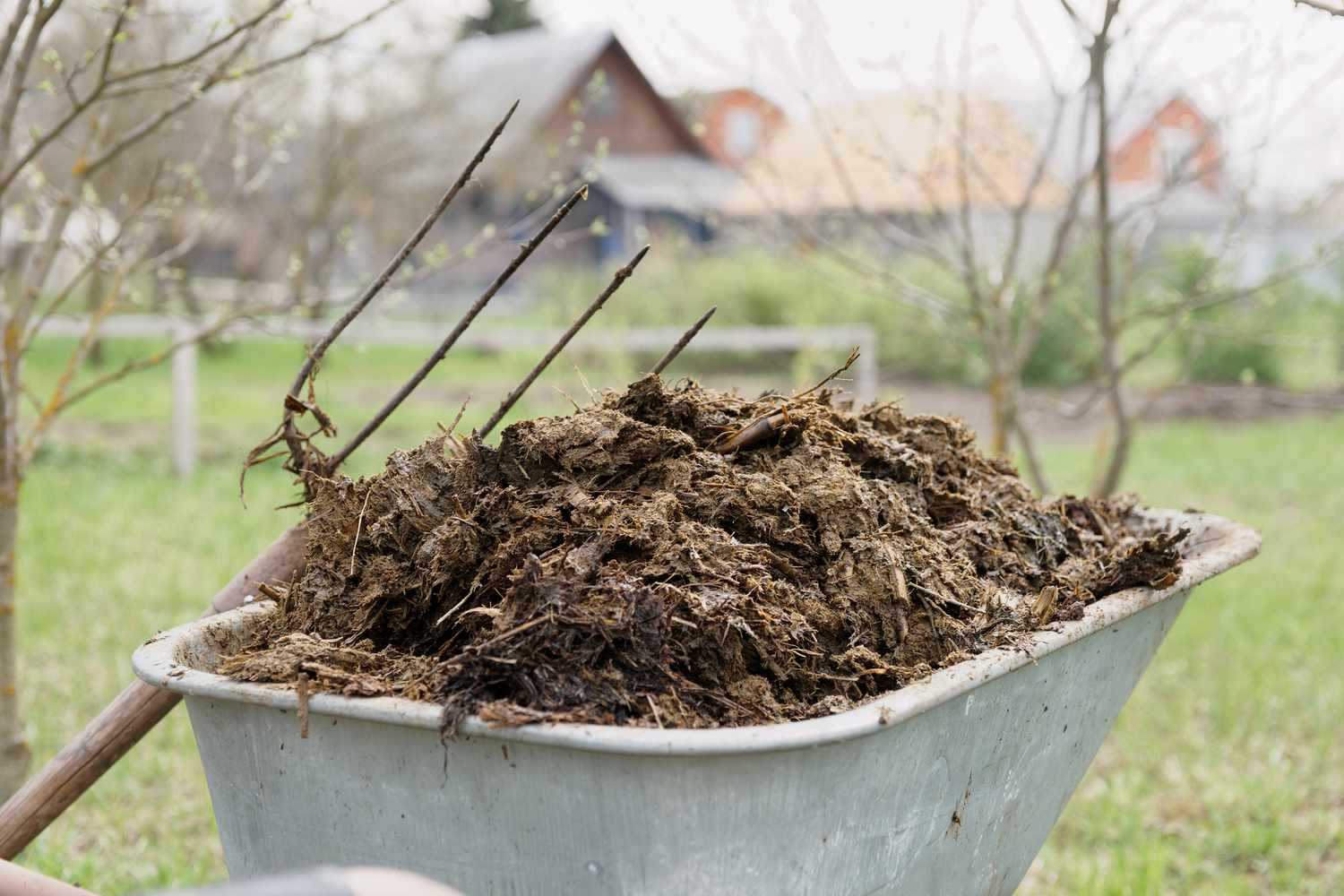Home>Gardening Tips and Tricks>Eco-Friendly Gardening>How Long To Compost Pig Manure
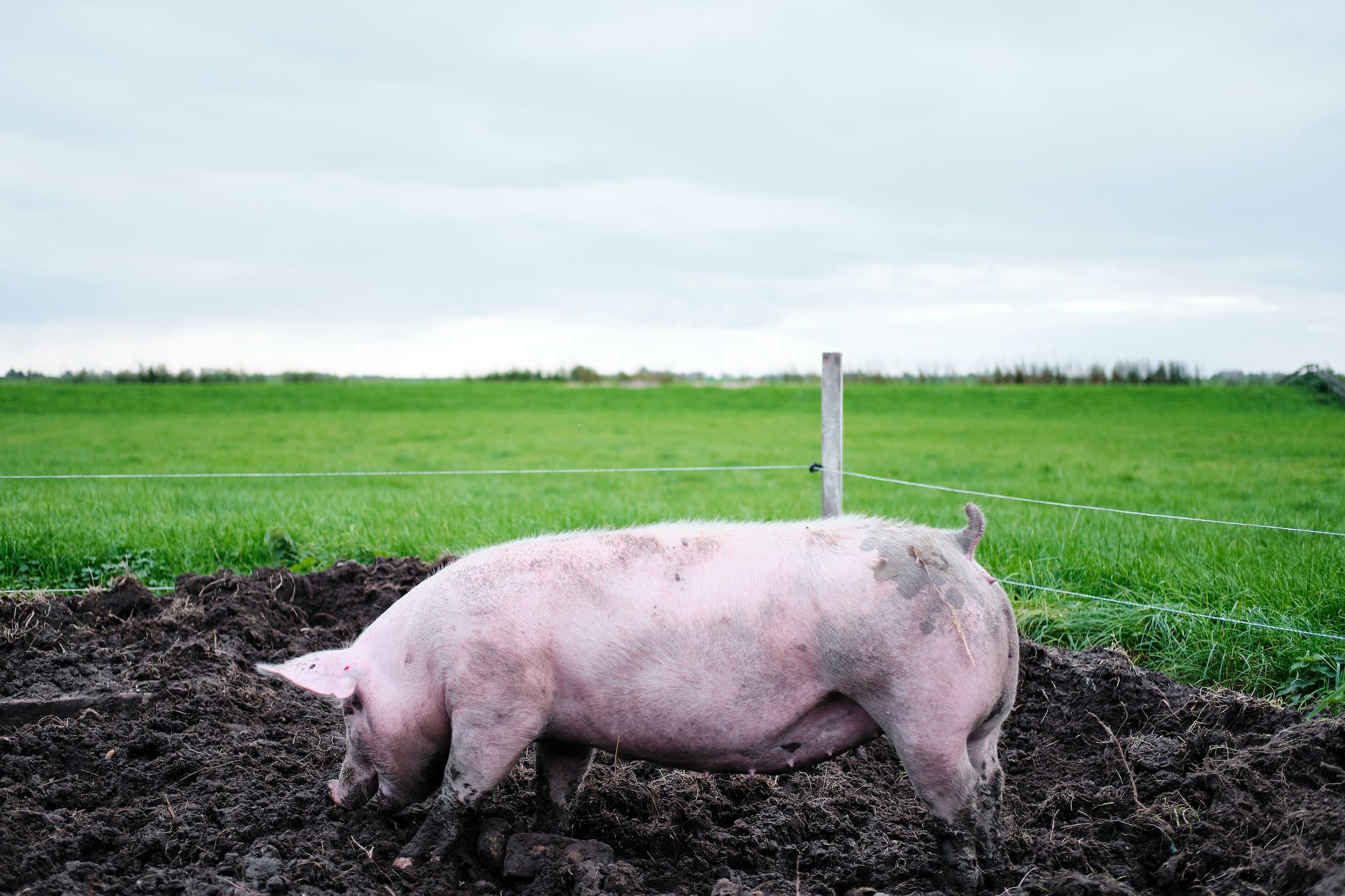

Eco-Friendly Gardening
How Long To Compost Pig Manure
Modified: January 22, 2024
Discover how long it takes to compost pig manure and practice eco-friendly gardening for a sustainable and nutrient-rich garden.
(Many of the links in this article redirect to a specific reviewed product. Your purchase of these products through affiliate links helps to generate commission for Chicagolandgardening.com, at no extra cost. Learn more)
Table of Contents
Introduction
Welcome to the world of eco-friendly gardening! In today’s fast-paced world, where sustainability and environmental consciousness are highly valued, more and more people are turning to eco-friendly gardening practices. One essential aspect of eco-friendly gardening is composting, especially when it comes to utilizing organic waste such as pig manure.
Composting pig manure not only helps in managing waste but also provides a valuable resource for enriching the soil in your garden. With the right techniques, pig manure can be transformed into nutrient-rich compost, which promotes healthy plant growth and reduces the need for chemical fertilizers.
However, many gardeners wonder how long it takes to compost pig manure effectively. The duration of the composting process can vary based on several factors, including the composting technique used, the size and composition of the manure pile, and the environmental conditions in which it is placed. In this article, we will explore the different aspects of composting pig manure and provide guidelines on how to optimize the process.
Whether you are a seasoned gardener looking to improve your composting skills or a beginner eager to embrace sustainable gardening practices, this article will serve as a comprehensive guide to help you compost pig manure effectively and efficiently.
Understanding Pig Manure
Pig manure, also known as pig waste or pig poop, is a rich source of organic matter that can be used to nourish the soil. Pig manure is composed of feces and urine mixed with bedding materials, such as straw or wood shavings. It contains essential nutrients like nitrogen, phosphorus, and potassium, as well as trace elements that can benefit plant growth.
One important thing to note about pig manure is its high nitrogen content. Nitrogen is a crucial nutrient for plants, as it promotes leaf growth and overall plant vigor. However, the high nitrogen levels in pig manure can be too concentrated and may burn plants if applied directly. Therefore, composting pig manure is necessary to reduce the nitrogen concentration and create a balanced and safe organic fertilizer.
Another aspect to consider is the potential presence of pathogens and harmful bacteria in pig manure. Unlike herbivorous animals, pigs are omnivores, and their manure may contain harmful organisms that can pose risks to human health. Composting pig manure helps eliminate these pathogens by creating an environment with high temperatures that kill off harmful bacteria.
When using pig manure for composting, it is essential to combine it with carbon-rich materials like straw, leaves, or sawdust. This carbon-to-nitrogen ratio is vital for creating a balanced compost pile. The carbon-rich materials help balance out the high nitrogen content in the manure and provide the necessary structure for proper decomposition.
By understanding the composition and characteristics of pig manure, gardeners can make informed decisions on how to best utilize it in composting, ensuring a safe and nutrient-rich end product.
Benefits of Composting Pig Manure
Composting pig manure offers a range of benefits for both your garden and the environment. Let’s explore some of the key advantages:
- Nutrient-rich soil amendment: Composting pig manure transforms it into a nutrient-rich soil amendment that improves soil fertility. The compost provides essential nutrients like nitrogen, phosphorus, and potassium, along with a host of micronutrients, promoting healthy plant growth and development.
- Enhanced soil structure: The organic matter in composted pig manure improves soil structure and helps with moisture retention. It enhances soil aeration, drainage, and water-holding capacity, creating an ideal growing environment for plants.
- Reduced need for chemical fertilizers: By incorporating composted pig manure into your garden soil, you can reduce reliance on synthetic fertilizers. This reduces the risk of nutrient runoff and minimizes the impact on water bodies and ecosystems.
- Environmental sustainability: Composting pig manure is an eco-friendly way to manage organic waste. Rather than allowing it to accumulate and potentially contribute to pollution, you can repurpose the waste into a valuable resource for your garden.
- Cost-effective solution: Composting pig manure allows you to save money on purchasing commercial fertilizers. Instead, you can produce your own organic fertilizer using readily available materials, reducing gardening expenses in the long run.
- Reduction of odors: Properly composting pig manure helps to minimize the unpleasant odor associated with raw manure. The decomposition process breaks down organic matter and converts it into a stable and more odor-neutral compost that is easier to handle.
- Promotion of beneficial microorganisms: Composting pig manure encourages the growth of beneficial microorganisms in the soil. These microorganisms help break down organic matter, release nutrients, and suppress harmful pathogens, fostering a healthy and balanced soil ecosystem.
By composting pig manure, you can harness these benefits and create a sustainable cycle of nutrient recycling in your garden, while also reducing waste and minimizing your environmental footprint.
Factors Affecting Composting Time
The duration of composting pig manure can vary depending on several factors. Understanding these factors will help you optimize the composting process and achieve faster and more efficient results. Here are the key factors that influence composting time:
- Carbon-to-nitrogen ratio: The carbon-to-nitrogen (C/N) ratio is crucial for proper composting. A balanced ratio of approximately 25-30 parts carbon to 1 part nitrogen is ideal. Too much nitrogen-rich pig manure without enough carbon-rich materials can result in a slow composting process. Adding carbon-rich materials like straw or leaves helps balance the C/N ratio and promote decomposition.
- Particle size: The size of the pig manure particles can impact composting time. Smaller particle sizes provide more surface area for microbial activity, accelerating decomposition. Shredding or breaking down the pig manure into smaller pieces can expedite the process.
- Aeration and moisture: Proper aeration and moisture are essential for composting. Adequate oxygen levels and moisture content between 40% and 60% create an optimal environment for beneficial microorganisms to thrive. Turning or mixing the compost pile regularly promotes air circulation and prevents excessive moisture, facilitating decomposition.
- Temperature: Composting relies on microbial activity, and temperature plays a vital role in this process. The compost pile needs to reach temperatures between 130°F and 160°F (55°C and 71°C) for efficient decomposition. Higher temperatures help kill weed seeds, pathogens, and harmful bacteria, improving the quality of the compost.
- Composting method: The method you choose for composting pig manure can impact the time it takes to decompose. Traditional composting methods, such as using a compost bin or pile, may take several months to a year. Alternatively, utilizing a hot composting method or using composting machines can significantly reduce the composting time to a matter of weeks.
- Environmental conditions: External factors like temperature, humidity, and climate can affect the composting process. Warm and moist conditions promote faster decomposition, while cold or dry conditions can slow it down. Location and weather patterns play a role in determining composting time.
Keep in mind that these factors are interrelated, and their impact on composting time can vary. By monitoring and adjusting these factors accordingly, you can accelerate the composting process and obtain high-quality compost to nourish your garden.
Recommended Composting Techniques
Composting pig manure can be achieved through various techniques, each with its own advantages and considerations. Here are some recommended composting techniques to effectively convert pig manure into valuable compost:
- Traditional Composting: This method involves creating a compost pile or using a compost bin. Start by layering pig manure with carbon-rich materials like straw or leaves in a 3:1 ratio. Maintain a moisture level of 40% to 60% and turn the pile every few weeks to ensure proper aeration and decomposition. Traditional composting can take several months to a year to produce finished compost.
- Hot Composting: Hot composting, also known as thermophilic composting, utilizes higher temperatures to accelerate the decomposition process. To create a hot compost pile with pig manure, ensure a balanced C/N ratio, proper moisture levels, and frequent turning to maintain aeration. The increased temperature speeds up microbial activity, resulting in faster composting times of just a few weeks to a few months.
- Vermicomposting: Vermicomposting involves using earthworms to break down organic materials, including pig manure. Create a worm bin with layers of pig manure, bedding material like shredded paper or coconut coir, and a population of composting worms. The worms consume the organic matter, producing nutrient-rich castings, or worm castings, as a byproduct. Vermicomposting is a slower process but produces high-quality compost and can be done indoors or outdoors.
- In-Vessel Composting: In-vessel composting involves using specialized containers or composting machines to control the composting environment. These systems provide efficient decomposition by maintaining optimal temperature, moisture, and aeration. The smaller size of the vessel or machine allows for more consistent composting conditions and faster composting times, typically ranging from a few weeks to a few months.
- Composting with Microbes: Compost accelerators or composting with microbial inoculants can be used to introduce a diverse community of beneficial microorganisms into the compost pile. These microbes aid in breaking down organic matter more rapidly, expediting the composting process. Follow the instructions provided by the product manufacturer when using compost accelerators or inoculants.
When selecting a composting technique, consider factors such as available space, resources, time constraints, and desired composting time. Regardless of the method chosen, monitoring and adjusting essential factors like moisture, aeration, and temperature will enhance the efficiency of the composting process.
Experimenting with different composting techniques and finding the one that suits your needs will enable you to efficiently compost pig manure and produce nutrient-rich compost to nourish your plants and promote a thriving garden ecosystem.
Monitoring and Maintaining the Compost Pile
Proper monitoring and maintenance are crucial for successful composting of pig manure. By regularly assessing and adjusting key factors, you can ensure optimal decomposition and produce high-quality compost. Here are some essential steps to monitor and maintain your compost pile:
- Temperature: Monitoring the temperature of the compost pile is important to ensure microbial activity. Use a compost thermometer to check the temperature regularly. Aim for temperatures between 130°F and 160°F (55°C and 71°C) for efficient decomposition. If the temperature drops too low, the composting process may slow down, while excessively high temperatures may indicate a need to turn the pile or adjust the moisture levels.
- Moisture: Proper moisture levels are critical for composting. The compost pile should be moist, similar to a wrung-out sponge. Regularly check the moisture content by feeling the compost with your hands or using a moisture meter. If the pile seems dry, add water using a hose or sprinkler. If it’s too wet, turn the pile to improve aeration and add dry carbon-rich materials to absorb excess moisture.
- Aeration: Good airflow is essential for composting. Regularly turning or mixing the compost pile helps maintain proper aeration and prevents the pile from becoming compacted. Use a pitchfork or compost aerator to turn the materials, ensuring that the outer materials move to the center and vice versa. This promotes decomposition and prevents the pile from emitting foul odors.
- Adding carbon-rich materials: Continuous addition of carbon-rich materials like straw, leaves, or wood chips helps maintain a balanced carbon-to-nitrogen ratio. Layer these materials with pig manure as you build the compost pile or incorporate them when turning the pile. Maintaining the proper ratio ensures efficient composting and prevents the pile from becoming too nitrogen-rich, which can slow down the process and result in unpleasant odors.
- Managing pests and weeds: Monitor the compost pile for any signs of pests or weeds. Frequently turning the pile and maintaining proper temperatures can help control unwanted organisms. Avoid adding weed seeds or invasive plant materials to the compost pile, as this can result in weed growth when the compost is used in the garden.
By regularly monitoring and maintaining your compost pile, you can ensure optimal conditions for decomposition and avoid common issues like odors, slow composting, or nutrient imbalances. Adjusting temperature, moisture, aeration, and carbon-to-nitrogen ratio as needed will keep your compost pile healthy and thriving.
Remember that composting is a dynamic process, and the needs of the compost pile may change over time. By actively observing and tending to your compost pile, you can produce nutrient-rich compost that will enrich your soil and support the growth of healthy, vibrant plants.
Composting Duration for Pig Manure
The duration required to compost pig manure can vary depending on several factors. With the right conditions and techniques, pig manure can be transformed into nutrient-rich compost within a few months. However, it is important to note that the composting process can take longer under certain circumstances. Here are some factors that influence the duration of composting for pig manure:
- Composting method: The method chosen for composting pig manure plays a significant role in determining the duration. Traditional composting methods, such as using compost bins or piles, typically take six months to a year to produce finished compost. Hot composting methods, which involve higher temperatures to expedite decomposition, can yield finished compost in a matter of weeks to a few months.
- Pile size and composition: The size and composition of the compost pile affect the composting duration. Larger piles tend to generate and retain heat better, speeding up the decomposition process. A balanced mixture of pig manure, carbon-rich materials, and other organic matter promotes favorable conditions for microbial activity and faster composting.
- Aeration and moisture: Proper aeration and moisture levels are essential for efficient composting. Regularly turning the compost pile to provide oxygen and ensuring adequate moisture, similar to a wrung-out sponge, help create the ideal environment for microbial activity. Insufficient aeration and moisture can prolong the composting process.
- Environmental conditions: Temperature, humidity, and climate can impact the composting duration. Warm and moist conditions accelerate decomposition, while cold or dry environments slow it down. Composting may progress more rapidly during the warmer months of the year compared to colder seasons.
- Particle size: The particle size of pig manure can influence the composting duration. Breaking down or shredding the manure into smaller pieces increases the surface area for microbial activity, allowing for faster decomposition.
- Management and maintenance: Proper monitoring, regular turning of the pile, and maintaining the appropriate carbon-to-nitrogen ratio help optimize the composting process and reduce the duration. Monitoring temperature, moisture, and aeration, and making necessary adjustments play a vital role in achieving faster composting times.
While the composting duration for pig manure can range from a few weeks to several months, the quality of the final compost is worth the wait. Regularly monitoring and providing the right conditions can expedite the process and ensure the production of nutrient-rich compost that enhances the fertility of your garden soil.
Remember, the aim is to allow sufficient time for the pig manure to break down and transform into a stable and fully composted form. Patience, attention to detail, and proper management of the compost pile will result in a valuable resource that nourishes your plants and promotes sustainable gardening practices.
Signs of Finished Compost
Determining when your pig manure compost is fully finished and ready for use in the garden is an important step in the composting process. While the time it takes for compost to reach maturity can vary, there are several signs to look for to determine if your compost is ready. Here are some indicators that your pig manure compost has finished composting:
- Dark, crumbly texture: Finished compost should have a dark brown or black color and a crumbly texture. The decomposition process breaks down the organic matter, resulting in a loose and friable consistency that is easy to handle.
- Earthy smell: Fresh compost may have a slightly earthy aroma, similar to damp soil. Finished compost should not have a strong odor or smell like ammonia or raw manure. If your compost has a pleasant, earthy scent, it is a good indication that it is fully decomposed and ready for use.
- No recognizable materials: As organic matter decomposes during the composting process, it gradually breaks down into smaller particles. Finished compost should not have any distinguishable pieces of manure or other materials that were initially added to the pile. If all the organic matter has transformed into a homogeneous material, it suggests that decomposition is complete.
- Temperature stabilization: Throughout the composting process, the temperature inside the pile gradually decreases. When the compost has finished decomposing, the temperature will stabilize and become similar to the ambient temperature. This indicates that the microbial activity has slowed down and the composting process is complete.
- Increased soil-like appearance: As compost matures, it takes on a soil-like appearance. The decomposition and breakdown of organic matter result in a material that closely resembles rich, dark topsoil. This is a visual cue that your pig manure compost has transformed into a valuable soil amendment.
It is important to note that the duration required for pig manure compost to reach completion can vary depending on the composting method, pile size, and environmental factors. Monitoring the aforementioned signs will give you a good indication of when your compost is fully finished and ready to be incorporated into your garden soil.
Keep in mind that even if your compost is not fully mature, it can still be beneficial for certain gardening applications. Partially decomposed compost, also known as “black gold,” can be used as a mulch or added as an amendment to improve soil structure.
By identifying these signs of finished compost, you can confidently utilize your pig manure compost to enhance soil fertility, promote plant growth, and contribute to a more sustainable and eco-friendly gardening approach.
Final Thoughts
Composting pig manure is a rewarding and eco-friendly practice that allows you to transform organic waste into a valuable resource for your garden. By utilizing the recommended composting techniques and understanding the factors that affect composting time, you can effectively convert pig manure into nutrient-rich compost while minimizing environmental impact.
Remember to monitor and maintain your compost pile, adjusting temperature, moisture, and aeration as needed. Regular turning of the pile and ensuring a balanced carbon-to-nitrogen ratio will help expedite the composting process and produce high-quality compost.
Knowing the signs of finished compost, such as its dark, crumbly texture, earthy smell, absence of recognizable materials, stabilized temperature, and a soil-like appearance, will ensure that your pig manure compost is fully decomposed and ready for use in your garden.
Composting pig manure not only provides a nutrient-rich soil amendment but also contributes to sustainable gardening practices. By reducing waste, minimizing the need for chemical fertilizers, and enhancing soil fertility, you play a vital role in promoting environmental stewardship and creating a healthier and more vibrant garden ecosystem.
So, embrace the opportunity to compost your pig manure, turning it into “black gold” that will nourish your plants and contribute to a more sustainable future. Enjoy the rewards of a thriving garden, knowing that you are making a positive impact on the environment and cultivating a greener, more eco-friendly world.
